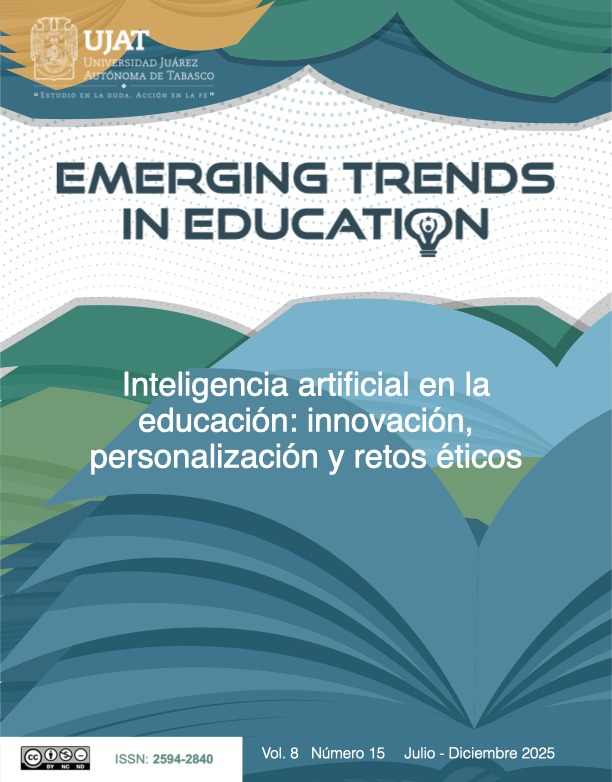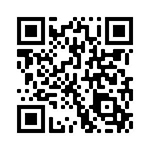Relaciones entre autocontrol y perdón con las intervenciones defensivas de los espectadores en el ciberacoso
DOI:
https://doi.org/10.19136/etie.v8n15.6318Palabras clave:
autocontrol, acoso, perdón, ciberespectadores, fortalezas humanasResumen
Algunos estudios mencionan que el autocontrol y el perdón contribuyen a la disminución del ciberacoso; sin embargo, son escasos los estudios que han indagado en las relaciones de estas variables con las intervenciones defensivas de los espectadores en el ciberacoso. El presente estudio tiene como objetivo examinar la relación entre las fortalezas humanas de perdón y autocontrol con las intervenciones defensivas de los espectadores en el ciberacoso. La muestra se seleccionó de forma no probabilística, con un total de 147 estudiantes universitarios, cuyas edades oscilan entre los 17 y los 35 años (M edad = 22.50, DE = 3.78). Se utilizaron dos subescalas de la escala multidimensional de templanza en adolescentes (TV) para medir el perdón y el autocontrol (García et al., 2021). Las intervenciones defensivas de los espectadores se midieron mediante las subescalas de intervención agresiva y constructiva de la escala del instrumento de estilos de intervención de los espectadores (Alcantar-Nieblas et al., 2022). Esta escala presenta dos dimensiones: (a) intervención constructiva y (b) intervención agresiva. Se encontró que el autocontrol y el perdón se relacionaron de manera positiva y significativa con las intervenciones constructivas. Sin embargo, no se encontró relación entre estas fortalezas con la intervención agresiva.
Referencias
Adorjan, M., & Ricciardelli, R. (2019). Student perspectives towards school responses to cyber-risk and safety: the presumption of the prudent digital citizen. Learning, Media and Technology, 44(4), 430–442. https://doi.org/10.1080/17439884.2019.1583671
Alcantar-Nieblas, C., Álvarez-Montero, F. J., & Valdés-Cuervo, Á. A. (2022). Relación entre la identidad moral y los estilos de intervención de los espectadores defensores en el ciberacoso. RECIE. Revista Electrónica Científica de Investigación Educativa, 6, e1685–e1685. https://doi.org/10.33010/recie.v6i0.1685
Alcantar-Nieblas, C., Valdés-Cuervo, A. A., Parra-Pérez, L. G., Álvarez-Montero, F. J., & García-Vázquez, F. I. (2024). Psychometric properties of the styles of bystander defender intervention scale in cyberbullying in mexican adolescents: Its relationships with moral identity and cyberbullying: Bystander defender intervention scale in cyberbullying. Revista Colombiana de Psicología, 33(1). https://doi.org/10.15446/rcp.v33n1.105145
Allison, K. R., & Bussey, K. (2016). Cyber-bystanding in context: A review of the literature on witnesses' responses to cyberbullying. Children and Youth Services Review, 65, 183–194. https://doi.org/10.1016/j.childyouth.2016.03.026
Brody, N. (2021). Bystander intervention in cyberbullying and online harassment: The role of expectancy violations. International Journal of Communication, 15, 647–667. https://ijoc.org/index.php/ijoc/article/viewFile/14169/3342
Bussey, K., Luo, A., Fitzpatrick, S., & Allison, K. (2020). Defending victims of cyberbullying: The role of self-efficacy and moral disengagement. Journal of School Psychology, 78, 1–12. https://doi.org/10.1016/j.jsp.2019.11.006
Cabrera-Gómez, C. C., Rengifo-Rengifo, L., Suárez, J. M., Rivera-Porras, D., & Carrillo-Sierra, S. M. (2020). Fortalezas de carácter según género en personas de salinas de Guardias: perspectiva de intervención desde el Modelo PERMA a la economía solidaria. Archivos Venezolanos de Farmacología y Terapéutica, 39(2), 226–236. https://doi.org/10.5281/zenodo.4068612
Cárdenas, H. S., García, F. I., & Valdés, Á. A. (2021). Liderazgo, autocontrol y el espectador prosocial en el acoso escolar. En M. A. Zavala, M. A. Vázquez, M. F. Durón, & L. V. Cota (Eds.), Temas selectos de psicología y educación. Evidencia empírica de investigaciones en Sonora, 115–129. Qartuppi. https://doi.org/10.29410/QTP.21.09
Casullo, M. M. (2005). La capacidad para perdonar desde una perspectiva psicológica. Revista de Psicología de la PUCP, 23(1), 39–63. https://www.redalyc.org/pdf/3378/337829529002.pdf
Cho, S. (2018). The impact of low self-control and delinquent peer associations on bullying perpetration and victimization among South Korean adolescents: Time-concurrent, time-lagged, and latent growth curve modeling. Journal of school Violence, 17(4), 500–520. https://doi.org/10.1080/15388220.2018.1453821
Cho, S., Glassner, S., & Lee, J. M. (2019). Impact of low self-control, parental involvement, and peer relationships on changes of bullying perpetration over time: A latent growth curve model of a sample of South Korean adolescents. Children and Youth Services Review, 104, 104397. https://doi.org/10.1016/j.childyouth.2019.104397
Cortés, A., Torres, A., López-López, W., Pérez, D. C., & Pineda-Marín, C. (2016). Comprensiones sobre el perdón y la reconciliación en el contexto del conflicto armado colombiano. Psychosocial Intervention, 25(1), 19–25. https://dx.doi.org/10.1016/j.psi.2015.09.004
Dordron de Pinho, V., & Oliveira, E. M. (2015). Intervenciones para la promoción del perdón y la inserción de la empatía: Revisión de la literatura. Revista Argentina de Clínica Psicológica, 24(2), 111–120. https://www.redalyc.org/pdf/2819/281946783003.pdf
Duckworth, A., & Gross, J. J. (2014). Self-control and grit. Current Directions in Psychological Science, 23(5), 319–325. https://doi.org/10.1177/0963721414541462
Enright, R., & Fitzgibbons, R. (2015). Forgiveness therapy: An empirical guide for resolving anger and restoring hope. American Psychological Association. https://doi.org/10.1037/14526-000
Escobar, J., Montoya, L. E., Restrepo, D., & Mejía, D. (2017). Ciberacoso y comportamiento suicida. ¿Cuál es la conexión? A propósito de un caso. Revista Colombiana de Psiquiatría, 46(4), 247–251 http://dx.doi.org/10.1016/j.rcp.2016.08.004
Estévez, C., Carrillo, A., & Gómez, M. (2018). Inteligencia emocional y bullying en escolares de primaria. International Journal of Developmental and Educational Psychology, 1(1), 227–238. https://www.redalyc.org/journal/3498/349855553025/html/
Ettekal, I., Kochenderfer-Ladd, B., & Ladd, G. W. (2015). A synthesis of person- and relational-level factors that influence bullying and bystanding behaviors: Toward an integrative framework. Aggression and Violent Behavior, 23, 75–86. https://www.sciencedirect.com/science/article/abs/pii/S1359178915000737
Fimbres-Celaya, D., García-Vázquez, F. I., Valdés-Cuervo, A. A., & León-Parada, M. D. (2021). Autocontrol y agresión reactiva en adolescentes mexicanos. European Journal of Child Development, Education and Psychopathology, 9(1), 1–11. https://doi.org/10.32457/ejpad.v9i1.1406
Gander, F., Wagner, L., & Niemiec, R. M. (2024). Do character strengths-based interventions change character strengths? Two randomized controlled intervention studies. Collabra: Psychology, 10(1). https://doi.org/10.1525/collabra.108604
García-Vázquez, F. I., Durón-Ramos, M. F., Pérez-Rios, R., & Pérez-Ibarra, R. E. (2022). Relationships between spirituality, happiness, and prosocial bystander behavior in bullying—The mediating role of altruism. European journal of investigation in health, psychology and education, 12(12), 1833–1841. https://doi.org/10.3390/ejihpe12120128
García-Vázquez, F. I., Valdés-Cuervo, A. A., & Parra-Pérez, L. G. (2020a). The effects of forgiveness, gratitude, and self-control on reactive and proactive aggression in bullying. International Journal of Environmental Research and Public Health, 17(16), Article e5760. https://doi.org/10.3390/ijerph17165760
García-Vázquez, F. I., Valdés-Cuervo, A. A., León-Parada, M. D. & Parra-Pérez, L. G. (2024). Restorative parental discipline and types of defending bystander intervention in cyberbullying: the mediate role of justice sensitivity. Cyberpsychology, Behavior, and Social Networking, 0(0) 1–10 https://doi.org/10.1089/cyber.2023.0445
García-Vázquez, F. I., Valdés-Cuervo, A. A., Martínez-Ferrer, B., & Parra-Pérez, L. G. (2019). Forgiveness, gratitude, happiness, and prosocial bystander behavior in bullying. Frontiers in Psychology, 10, Article 2827. https://doi.org/10.3389/fpsyg.2019.02827
García-Vázquez, F. I., Valdés-Cuervo, A. A., Martínez-Ferrer, B., & Parra-Pérez, L. G. (2020b). Forgiveness, gratitude, happiness, and prosocial bystander behavior in bullying. Frontiers in Psychology, 10, 1–12 https://doi.org/10.3389/fpsyg.2019.02827
García-Vázquez, F. I., Valdés-Cuervo, Á. A., Navarro-Villarreal, A. G., Parra-Pérez, L. G., Durón-Ramos, M. F., & Fimbres-Celaya, D. (2021). Psychometric properties of the multidimensional temperance scale in adolescents. International Journal of Environmental Research and Public Health, 18(23), 12727. https://doi.org/10.3390/ijerph182312727
Herrera-López, M., Romera, E. M., & Ortega-Ruíz, R. (2018). Bullying y Cyberbullying en Latinoamérica. Un estudio bibliométrico. Revista mexicana de investigación educativa, 23(76), 125–155. http://www.scielo.org.mx/scielo.php?script=sci_arttext&pid=S1405-66662018000100125&lng=es&tlng=es.Investigaci%C3%B3n%20cuantitativa%20y%20cualitativa.pdf
Instituto Nacional de Estadística y Geografía. (2023). Módulo sobre ciberacoso (MOCIBA) 2022. https://www.inegi.org.mx/programas/mociba/2022/
Instituto Nacional de Estadística y Geografía. (2024). Módulo sobre ciberacoso (MOCIBA) 2023. Cortéshttps://www.inegi.org.mx/programas/mociba/2023/
Leung, A. N. M. (2021). To help or not to help: Intervening in cyberbullying among Chinese cyber-bystanders. Frontiers in Psychology, 12(1), 1–13. https://doi.org/10.3389/fpsyg.2021.483250
Leung, A. N., Wong, N., & Farver, J. M. (2018). You are what you read: The belief systems of cyber-bystanders on social networking site. Frontiers in psychology, 9, 365. https://doi.org/10.3389/fpsyg.2018.00365
Luo, A., & Bussey, K. (2019). The selectivity of moral disengagement in defenders of cyberbullying: Contextual moral disengagement. Computers in Human Behavior, 93, 318–325. https://doi.org/10.1016/j.chb.2018.12.038
Machackova, H., Pfetsch, J., & Steffgen, G. (2018). Editorial: Special issue on bystanders of online aggression. Cyberpsychology: Journal of Psychosocial Research on Cyberspace, 12(4), 1. https://doi.org/10.5817/CP2018-4-xx
Marín-Cortés, A., & Linne, J. (2020). Una revisión sobre emociones asociadas al ciberacoso en jóvenes adultos. Psicoperspectivas, 19(3), 155–170. https://dx.doi.org/10.5027/psicoperspectivas-vol19-issue3-fulltext-1824
Millán, E., & Caro, C. (2022). Prevención de la violencia y el acoso en la red en adolescentes: estrategias familiares de crecimiento personal. Teoría de la Educación, Revista Interuniversitaria, 34(1), 105–124. https://doi.org/10.14201/teri.26157
Millán-Ghisleri, E., & Ahedo-Ruiz, J. (2023). Perspectiva antropológica del perdón desde Hannah Arendt y Leonardo Polo. Sophia. Colección de Filosofía de la Educación, (34), 65–86. https://doi.org/10.17163/soph.n34.2023.02
Moretti, C., & Herkovits, D. (2021). De víctimas, perpetradores y espectadores: una meta-etnografía de los roles en el ciberbullying. Cadernos de Saúde Pública, 37(4), e00097120. https://doi.org/10.1590/0102-311X00097120
Moxey, N., & Bussey, K. (2020). Styles of bystander intervention in cyberbullying incidents. International Journal of Bullying Prevention, 2, 6–15. https://doi.org/10.1007/s42380-019-00039-1
Neill, D., & Cortez, L. (2018). Investigación cuantitativa y cualitativa. Neill, D. A., Quezada-Abad, C., & Arce-Rodríguez, J. Procesos y Fundamentos de la Investigación Científica. Editorial UTMACH, 1(4), 68–87 http://repositorio.utmachala.edu.ec/bitstream/48000/14232/1/Cap.4-Investigaci%c3%b3n%20cuantitativa%20y%20cualitativa.pdf
Oliveira, W. A. D., Esteca, A. M. N., Wechsler, S. M., & Menesini, E. (2024). Bullying and cyberbullying in school: rapid review on the roles of gratitude, forgiveness, and self-regulation. International journal of environmental research and public health, 21(7), 839. https://doi.org/10.3390/ijerph21070839
Olweus, D. (2012). Cyberbullying: an overrated phenomenon?, European Journal of Developmental Psychology, 9(5), 520–538. https://doi.org/10.1080/17405629.2012.682358
Olweus, D., & Limber, S. P. (2018). Some problems with cyberbullying research. Current Opinion in Psychology, 19, 139–143. https://doi.org/10.1016/j.copsyc.2017.04.012
Pechorro, P., Marsee, M., DeLisi, M., & Maroco, J. (2021). Self-control and aggression versatility: moderating effects in the prediction of delinquency and conduct disorder among youth. The Journal of Forensic Psychiatry & Psychology, 32(6), 949–966. https://doi.org/10.1080/14789949.2021.1959627
Peker, A., & Yildiz, M. N. (2021). Mediating Role of self-control in the relationship between aggressiveness and cyber bullying. Psychiatry and Behavioral Sciences, 11(1), 40. https://doi.org/10.5455/PBS.20210114051215
Pronk, J., Olthof, T., Goossens, F. A., & Krabbendam, L. (2019). Differences in adolescents’ motivations for indirect, direct, and hybrid peer defending. Social Development, 28(2), 414–429. https://doi.org/10.1111/sode.12348
Quintana-Orts, C. L., & Rey, L. (2020). El perdón ante el acoso y el ciberacoso escolar. ¿Por qué es tan importante entrenarlo en la adolescencia? El perdón ante el acoso y ciberacoso escolar. Centro de Estudios Andaluces, 91, 1–18. https://www.centrodeestudiosandaluces.es/publicaciones/n-91-el-perdon-ante-el-acoso-y-el-ciberacoso-escolar-por-que-es-tan-importante-entrenarlo-en-la-adolescencia
Quintana-Orts, C. L., Rey, L., & Worthington, E. L. J. (2021). Una revisión narrativa de los instrumentos usados para evaluar el perdón en contextos de acoso y ciberacoso escolar. Know and Share Psychology, 2(1). https://doi.org/10.25115/kasp.v2i1.3894
Rapp, H., Wang Xu, J., & Enright, R. D. (2022). A meta‐analysis of forgiveness education interventions’ effects on forgiveness and anger in children and adolescents. Child Development, 93(5), 1249–1269. https://doi.org/10.1111/cdev.13771
Real, M., Navarro-Soria, I., Collado-Valero, J., Lavigne-Cervan, R., & Delgado-Domenech, B. (2022). Ciberacoso y funciones ejecutivas en niños y adolescentes: una revisión sistemática. Revista de Educación, 397, 69–95. https://doi.org/10.4438/1988-592X-RE-2022-397-540
Rocha, A., Amarís, M., & López López, W. (2017). El perdón como estrategia de afrontamiento. Una mirada desde el modelo de la complejidad del afrontamiento. Terapia Psicológica, 35(3), 271–281. http://dx.doi.org/10.4067/S0718-48082017000300271
Russell, L. (2020). The who, the what, and the how of forgiveness. Philosophy Compass, 15(3), e12656. https://doi.org/10.1111/phc3.12656
Seligman, M. E. P. (2011). Flourish. A visionary new understanding of happiness and well being. Free Press.
Serrano, F. J., & Cázares, M. D. (2019). ¿Qué y por qué perdonar? Una revisión deflacionaria de la moralidad del perdón. En claves del Pensamiento, 13(25), 83–103. https://www.redalyc.org/journal/1411/141160244004/141160244004.pdf
Tirrell, J. M. (2022). Forgiveness as a character strength: Toward a developmental model and research agenda. Journal of Moral Education, 51(3), 312–335. https://doi.org/10.1080/03057240.2021.1873754
Valdés-Cuervo, A. A., Alcántar-Nieblas, C., Parra-Pérez, L. G., Torres-Acuña, G. M., Álvarez-Montero, F. J., & Reyes-Sosa, H. (2021). Unique and interactive effects of guilt and sympathy on bystander aggressive defender intervention in cyberbullying: The mediation of self-regulation. Computers in Human Behavior, 122, Article e106842. https://doi.org/10.1016/j.chb.2021.106842
Wang, L., & Ge, T. (2021). Does victimization predict cyberbullying perpetration? Examining depression as a mediator and self-control as a moderator. Personality and individual differences, 183, 111135. https://doi.org/10.1016/j.paid.2021.111135
Wong, R. Y. M., Cheung, C. M., Xiao, B., & Thatcher, J. B. (2021). Standing up or standing by: Understanding bystanders’ proactive reporting responses to social media harassment. Information Systems Research, 32(2), 561–581. https://doi.org/10.1287/isre.2020.0983
Yot-Domínguez, C., Guzmán Franco, M. D., & Duarte Hueros, A. (2019). Trainee teachers’ perceptions on cyberbullying in educational contexts. Social Sciences, 8(1), 21 https://doi.org/10.3390/socsci8010021
Descargas
Publicado
Número
Sección
Licencia
Derechos de autor 2025 Emerging Trends in Education

Esta obra está bajo una licencia internacional Creative Commons Atribución-NoComercial-SinDerivadas 4.0.





























